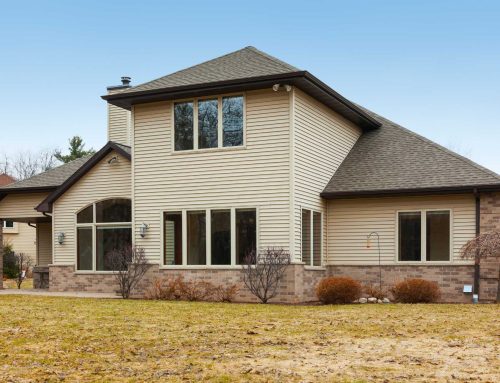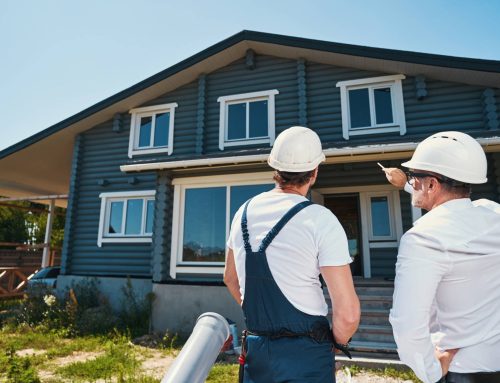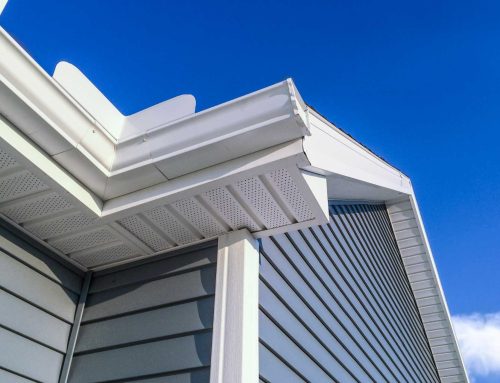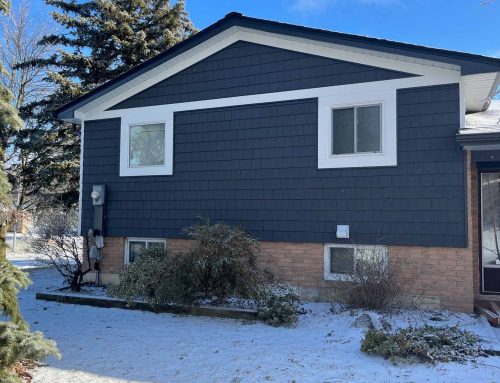As the external cladding of your home, siding serves both functional and aesthetic purposes. The siding material of your home plays a crucial role in protecting your home from external elements such as weather, pests, and moisture, helping to maintain the integrity and longevity of your home’s structure. Beyond its practical functions, siding also contributes to the curb appeal and overall aesthetic of your home, influencing its value and visual impact.
There are several siding materials you can choose from for your home. Different siding materials have varying maintenance requirements and costs, which can impact your time and budget for upkeep. Wood and aluminum are two types of siding material that you may be considering for your home. Here is a comparison between wood siding and aluminum siding:
Wood Siding
Wood siding is typically made from natural wood planks, such as cedar, pine, or redwood, and is known for its classic, rustic appearance. It can be installed in various styles, including clapboard, shingles, or shakes. However, wood siding requires regular maintenance, including painting and staining, to protect it from moisture, rot, and pests. Enter engineered wood siding, which is manufactured from wood fibres, resins, and adhesives. Engineered wood siding offers the look of natural wood but with enhanced durability and stability. This type of siding material is available in panels or lap siding and often comes pre-primed or pre-finished, reducing the need for ongoing maintenance.
Wood siding has natural insulating properties, helping to regulate indoor temperatures and improve energy efficiency, which can lead to lower heating and cooling costs over time. With proper maintenance, wood siding can last for decades. Cedar and redwood, in particular, are naturally resistant to decay, rot, and insect damage. Engineered wood siding is also designed for durability and can withstand the elements effectively. In the event of damage, wood siding is relatively easy to repair or replace in individual boards or sections, helping to maintain the integrity and appearance of your home over time.
Wood and engineered wood siding are most suitable for homes where a traditional, natural aesthetic is desired. These siding materials work well in a variety of architectural styles. However, wood and engineered wood siding may not be ideal for areas with high humidity or frequent exposure to moisture, as they can be susceptible to rot and decay over time without proper maintenance. When considering wood or engineered wood siding, be sure to factor in the ongoing maintenance requirements into your decision-making process.
Aluminum Siding
Aluminum siding is a type of exterior cladding made from aluminum panels. This type of siding material is lightweight, durable, and resistant to rust, making it suitable for various climates. Withstanding exposure to moisture, UV rays, and temperature fluctuations without deteriorating, aluminum siding is most suitable for homes in regions with harsh weather conditions, such as heavy rainfall or snowfall. It is also fire-resistant, making it a safer option for areas prone to wildfires. Additionally, aluminum siding is generally low-maintenance, requiring occasional cleaning but not needing painting or staining like wood siding.
Aluminum siding is lightweight, making it easy to handle and install. This can result in lower installation costs and reduced strain on your home’s structure. Properly installed and maintained aluminum siding can last for several decades, providing long-term protection and performance for your home.
However, for homes in coastal areas or regions with high salt exposure, aluminum siding may not be the best choice, as salt can corrode the metal over time. Furthermore, aluminum siding may lack the aesthetic appeal offered by other siding materials like wood or engineered wood. Since siding materials are a major contributor to your home’s overall aesthetic appeal, this aspect may matter significantly in your decision-making. Overall, aluminum siding is a practical choice for homeowners prioritizing durability, low maintenance, and weather resistance.
Ultimately, the decision between wood and aluminum siding depends on your priorities, preferences, and the specific characteristics of your home and environment. Consulting with siding professionals can also allow you to obtain guidance in choosing the right siding material for your home. Siding professionals can work with your specific needs, budget as well as local climate conditions in your area. With their expertise and experience, they can provide valuable insights into the pros and cons of different siding materials, recommend suitable options, and ensure proper installation, maximizing the durability and longevity of your siding.






